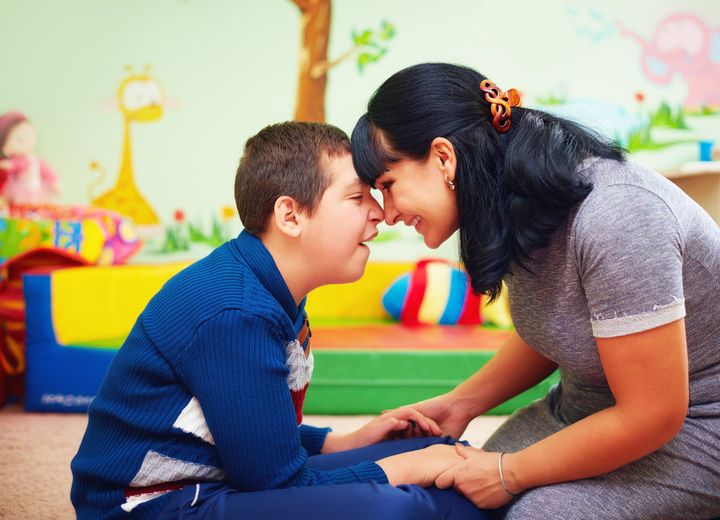العودة

March, a month to celebrate progress in gender equality, inclusiveness, and environmental protection!
اليونسكو
2023 - 03 - 03

Olesia Bilkei/Shutterstock.com
March is an important month, a time to celebrate and recognise the progress made towards gender equality, inclusiveness, and environmental protection. These three themes are all interconnected and essential components of education to achieve Sustainable Development Goals (SDGs).
The International Women’s Day on 8 March, which this year focused on the need for inclusive and transformative technology and digital education, is a day to celebrate the accomplishments of women in all aspects of life, including education. Women’s empowerment is closely linked to education; and investing in women’s education has been proven to lead to long-term economic, social, and political benefits. Education is also a crucial step in providing women with the skills, knowledge, and confidence to make decisions about their own lives, and to participate in the workforce and in their communities.
The 21st of March, a.k.a. World Down Syndrome Day, is a day to raise awareness of the importance of inclusive education for people with Down Syndrome. Studies have shown that education can help break down barriers, empower people with Down Syndrome, and provide them with opportunities for inclusion that allow them to access education, and integrate the workforce and the wider community.
On International Day of Mathematics on 14 March, it is crucial to increase worldwide recognition of mathematical sciences in order to tackle issues in fields like Artificial Intelligence (AI), climate change, energy and sustainable development, which can greatly improve the quality of life for people in both developed and developing countries.
The World Water Day observed on 22 March is an important day that serves to remind us of the importance of managing our global water resources in a sustainable way. This day is also connected to education, as it highlights the need for improved access to water, sanitation, and hygiene (WASH) education, particularly for those living in marginalised and underserved communities. As part of UNESCO’s commitment to SDGs, it is an opportunity to educate learners about the importance of water and the need to protect it in order to ensure the sustainability of our planet.
أحدث المنشورات
القائمة الكاملةاليونسكو
المستقبل على المحك: لماذا الاستثمار في التعليم أمر بالغ الأهمية؟
يسلط هذا التقرير، الذي أعدّته اللجنة التوجيهية الرفيعة المستوى المعنية بالهدف الرابع من أهداف التنمية المستدامة (SDG4) بالتعاون مع الشراكة العالمية من أجل التعليم (GPE) ونُشر في عام 2024، الضوء على الحاجة المُلِحّة لتعزيز الاستثمار في التعليم كوسيلة أساسية لمواجهة التحديات العالمية، بما في ذلك تغيّر المناخ، والتطورات التكنولوجية، والتحوّلات الديموغرافية.
اليونسكو
المدن العربية تتألق في جوائز مدن التعلم لليونسكو لعام 2024
تُحرز المدن العربية تقدمًا كبيرًا في مجال التنمية المستدامة والتعلم مدى الحياة، مع تركيز متزايد على إنشاء بيئات تعليمية شاملة تُسهم في تحقيق الأهداف التنموية المحلية والعالمية. وقد احتفلت جوائز مدن التعلم لعام 2024، التي تُمنح من قِبَل اليونسكو، بهذه الجهود، مبرزةً المدن العربية التي تميزت في بناء مجتمعات تعليمية.
اليونسكو
مؤتمر اليونسكو العالمي الثالث للموارد التعليمية المفتوحة: تعزيز الوصول الشامل إلى المعرفة
انطلق مؤتمر اليونسكو العالمي الثالث للموارد التعليمية المفتوحة (OER) في 19 نوفمبر/تشرين الثاني 2024، في مركز دبي التجاري العالمي في دولة الإمارات العربية المتحدة، ليكون المرة الأولى التي يُستضاف فيها هذا الحدث في العالم العربي. نظّم مؤتمر اليونسكو بالتعاون مع مؤسسة محمد بن راشد آل مكتوم للمعرفة (MBRF)واستقطب أكثر من 500 مشارك ومشاركة من نخبة القادة العالميين، وصنّاع السياسات، وممثلي المؤسسات التعليمية، بما في ذلك وزراء، وأكاديميون، وخبراء من القطاع الخاص. وتركّزت المناقشات على مدار يومين حول تعزيز الاستفادة من الموارد التعليمية المفتوحة والتقنيات الناشئة، بهدف تحقيق وصول عادل وشامل إلى التعليم، وتقليص الفجوة الرقمية على الصعيد العالمي.
اليونسكو
الأمم المتحدة تحتفي في شهر ديسمبر/كانون الأول بحقوق الإنسان، والأشخاص ذوي الإعاقة، واللغة العربية
تُحيي الأمم المتحدة في شهر ديسمبر/كانون الأول ثلاث مناسبات بارزة تُعنى بحقوق الإنسان، وبحقوق الأشخاص ذوي الإعاقة، وباللغة العربيّة، ممّا يجعل هذا الشهر فرصةً عالميّةً للتفكير والعمل. وتقود اليونسكو الجهود لتعزيز التعليم الشامل، وحماية حقوق الإنسان، والاحتفاء بالإرث الثقافيّ واللغويّ للّغة العربيّة، من خلال سلسلة من الفعاليات والمبادرات.